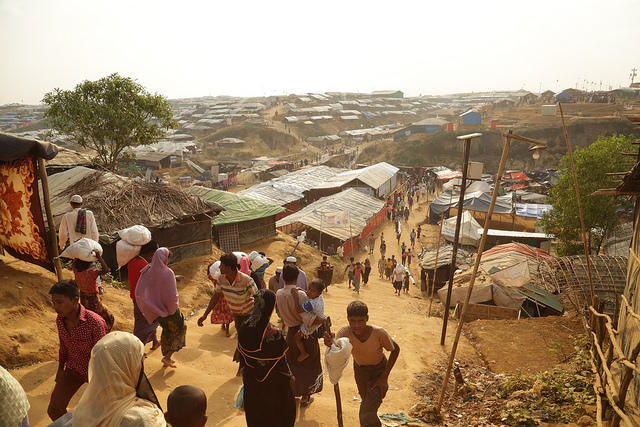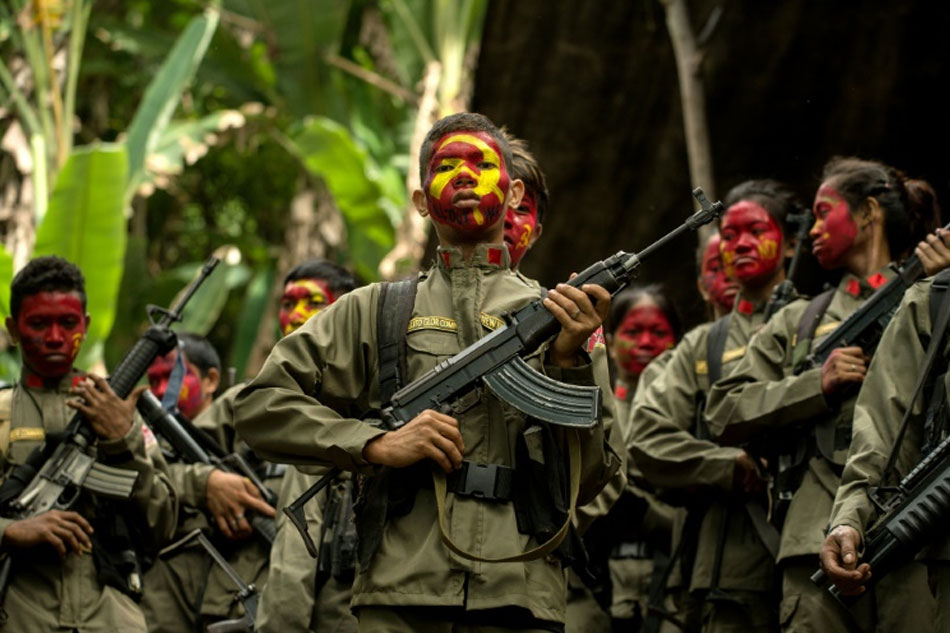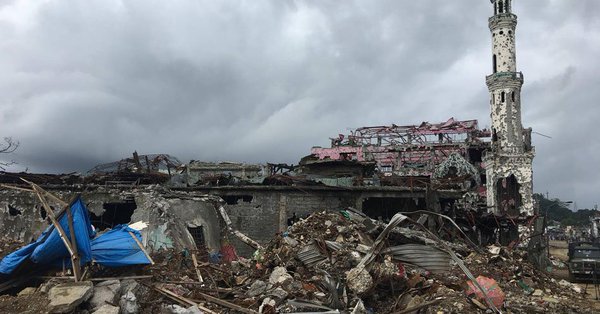
Last year’s Marawi crisis represents the most significant terrorism development in Southeast Asia since the 2002 Bali bombings. Despite expectations that the rollback of Islamic State (IS) forces in the Middle East would see a return of fighters to Southeast Asia, the group’s capacity to occupy an entire city—and to repel Philippines conventional forces for five months—was unforeseen.
The Marawi model has injected new enthusiasm into the small fringe of militant Southeast Asian Islamists who operate in remoter parts of the Philippines and Indonesia. It also demonstrated the possibilities of a command and control model whereby IS commanders direct local forces from offshore locations.
The Marawi crisis was swiftly followed by the August Rohingya crisis. This has left a smouldering and tragic humanitarian disaster, with some 700,000 Rohingya now sheltering in tent cities on Myanmar’s western border with Bangladesh and no quick solutions in sight.
There are legitimate fears that the resentment sown by this example of what UN Secretary-General António Guterres has called ethnic cleansing will breed a new generation of terrorists and ready recruits for IS.
Both these situations are serious, warranting close attention from regional governments. The good news is that so far, it would seem, Marawi at least has spurred unprecedented levels of counterterrorism (CT) discussion among regional governments, and there’s at least some evidence of an increase in practical cooperation.
The Philippines, Indonesia and Malaysia have instituted coordinated patrols in the Sulu Sea in an effort to net militants seeking to leave by boat from the southern Philippines. Australia recently hosted a sub-regional defence ministers’ meeting on counterterrorism that saw ASEAN countries agree to link intelligence databases on terrorism suspects. Australia continues to push for closer cooperation and more capacity building, as evidenced at the last month’s ASEAN summit in Sydney.
In the case of the Rohingya, stonewalling by Myanmar’s government continues despite ASEAN’s pressure and the personal efforts of Malaysia’s Prime Minister Najib Razak and Indonesia’s President Joko Widodo. Myanmar’s scheme to repatriate the Rohingya has been met with skepticism and little uptake to date.
But here there’s some consolation. The Islamist group ARSA (Arakan Rohingya Salvation Army), which mounted the attacks on police posts that triggered Myanmar’s scorched-earth retribution, appears to hold limited political objectives. They aspire more to winning a better deal for the Rohingya than to linking with the IS global caliphate.
This makes ARSA’s struggle more akin to Thailand’s 14-year-old southern insurgency, which has largely remained focussed on the issue of local autonomy, and largely remained disconnected from IS goals elsewhere in Southeast Asia, which include launching attacks on Westerners.
Beyond the Rohingya and Marawi crises, Malaysia, Singapore and Indonesia each continue to develop their CT legislative frameworks and security arrangements. Singapore, the region’s acknowledged CT leader, experienced its first case of self-radicalisation and has moved quickly to strengthen its counter-radicalisation programs, as well as arrangements for crowd security.
Singapore’s situation is easier, however, than those of Indonesia and Malaysia, whose security forces must operate over more dispersed geography, with larger populations and more complex political challenges posed by their predominantly Muslim societies.
Indonesia’s political leaders are walking a fine line between accommodating the demands of an increasingly pious, and in some respects, less tolerant Islamic society, while also acting to firmly crack down on the groups who seek to tear at Indonesia’s delicate social fabric, or worse, to carry out actual violence.
The former motivation saw the sentencing and imprisonment of former Jakarta mayoral candidate Basuki Tjahaja Purnama (‘Ahok’) for blasphemy. The latter saw the passing of a an illiberal bill (known as ORMAS) giving Indonesia’s executive government powers to outlaw any community group deemed to be espousing principles inconsistent with the state ideology of Pancasila. This bill was subsequently used to ban the extremist organisation Hizbut Tahrir Indonesia.
Indonesia also continues to work on significantly strengthening its primary counterterrorism legislation, although the bill is currently held up as politicians and military officers wrangle over a larger role for the TNI in Indonesian CT. Meanwhile, the Australian-trained and highly effective police CT outfit, Detachment 88, continues to maintain an effective surveillance net over many of Indonesia’s potential militants.
Malaysia also continues to fine-tune its CT arrangements, opening a large-scale counter-messaging centre in cooperation with the government of Saudi Arabia while boosting the numbers of its CT police force. Malaysia continues to disrupt plots and apprehend terrorists en route to or from conflicts such as Marawi or the Middle East.
Elsewhere in Southeast Asia, Thailand’s southern insurgency continues to take lives, but hasn’t escalated beyond the southern border provinces, as was feared after the 2016 Queen’s Birthday attacks.
In sum, the picture for terrorism in Southeast Asia remains dynamic and concerning, but there are positive signs that Southeast Asian governments are treating the issue with increasing seriousness and diligence.




